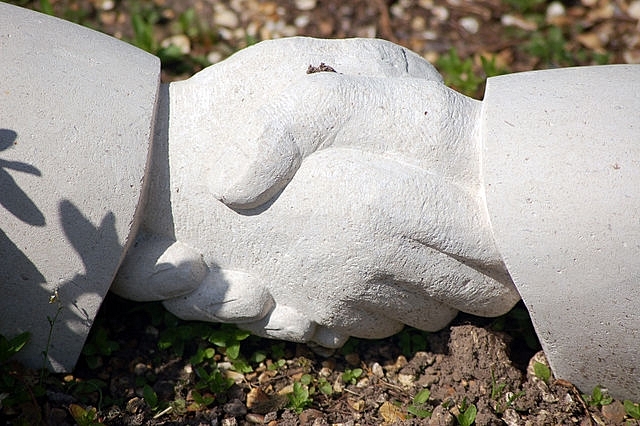
Attitude of Gratitude
On the importance of feeling grateful in public and personal life
One of the aspects that perturbs me about a lot of young and successful professionals these days is that they believe the corporate world is essentially hostile to human interests and that corporate life is fundamentally a battleground. As I listen to many of them while being engaged in coaching conversations, what startles me are the number of metaphors they use which has to deal with battle images when they talk about their day-to-day work life.
I hear them talk about strategy, I hear them talk about tactics, I hear them talk about their wins and next career moves and I can see the passion running them. But seldom do I hear them talk about somebody—a parent, a relative, a teacher, a manager, or an elderly neighbour, a leader, a coach or a mentor who has helped them reach where they are. Is gratitude fading away from people’s memories?
The English essayist Joseph Addison once wrote: “There is not a more pleasing exercise of the mind than gratitude. It is accompanied with such an inward satisfaction that the duty is sufficiently rewarded by the performance.”The leaders who have made it to the top are those who are capable of performing this pleasing exercise of the mind.
Interestingly enough, in my experience of interacting with many successful leaders, I have always found they have passionately talked about significant people who have helped them, to learn, to experience and to perform in very demanding times of their lives. Many a time they respectfully recollected the contribution of these significant people but for whom they would have not reached their current positions. Gratitude is an essential act in our lives because it helps us grow both professionally and personally.
There are many positive impacts of gratitude. I have tried to narrate some of them below that I experienced in my own career.
– It reminds you of the positivity in your life. When you remember people, significant or insignificant, influential or not so influential, resourceful or not so resourceful, and their kind acts that impacted your life positively, you start recalling those fond memories and in the process, your own belief in helping gets enhanced.
– It transforms your thinking process. Who does not have problems at work? But when you have a problem, if you start thinking about a previous act from someone else that helped you in the past, you become more optimistic. Optimism, as we all know, serves as a tonic when we are in trouble. You start believing that having problems is not an end in itself and you can learn from these problems by solving them. And that makes you a stronger person.
– It reminds you of what was important in each stage of your career. We must not forget the small milestones that we crossed in our growth process. When you recall the acts of others that have helped you to achieve in every stage of your career, you also become aware of what can help your team members, influencing them through positive acts of leadership.
– It reminds you to thank those significant people who contributed to your own growth. The English author G.B. Stern once said, “Silent gratitude isn’t much use to anyone.” I have seen that a simple act of saying “thank you” to someone can make a big impact.
If you really feel grateful to somebody you must call him. If that is not possible, send an email. However, stopping by to say thank you can be even better. Taking a little time off out of our lives to communicate to somebody who has helped me makes him/her feel good. Because every one of us appreciates positive strokes and what could be a better positive stroke than when we get appreciated for what we are and what we have genuinely contributed towards others’ growth and development.
– It reminds you that you are still not too late in your journey of life. American politician Frank A. Clark, while talking about those who forget those helpful acts and more importantly about those who bestowed on them those acts, said “If a fellow isn’t thankful for what he’s got, he isn’t likely to be thankful for what he’s going to get.” Remember, people around us watch us all the time. If we are generous in recognizing both the help and helper, they think positively about us. If not, they make their own assumptions about our character.
I have seen many such incidents where such people, when they grow into leadership positions, are hated by their own team members for this unkind act of the past. Most importantly, they seem to lose out on mutual trust which is the natural glue between a true leader and his/her followers.
American entrepreneur Chris Guillebeau once described “a life of gratitude” composed of three basic tenets. These are
– A sense of purpose in our lives.
– An appreciation for the lives of those around us.
– A willingness to take action to show the gratitude we feel.
Where are you in your journey of life?